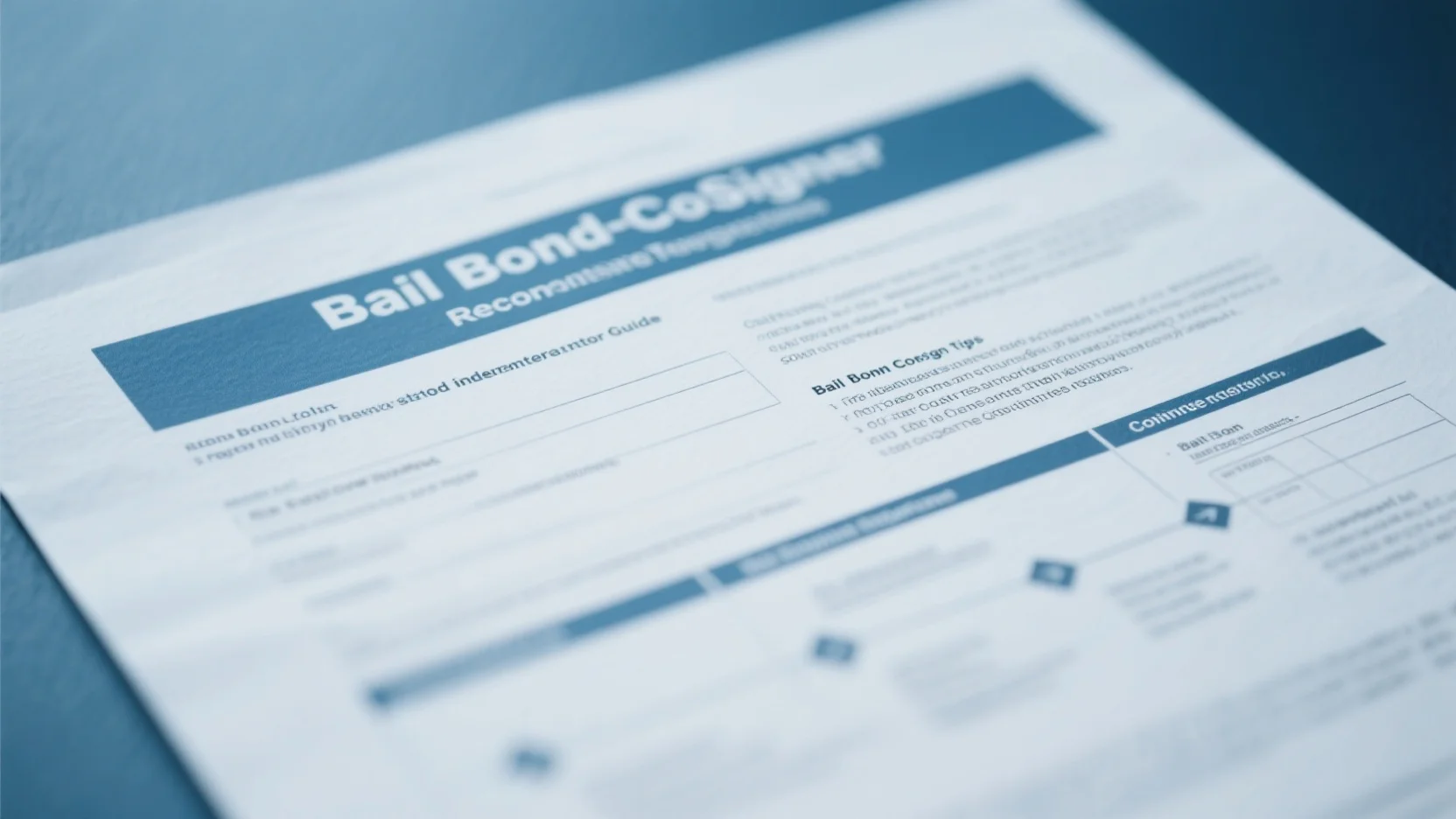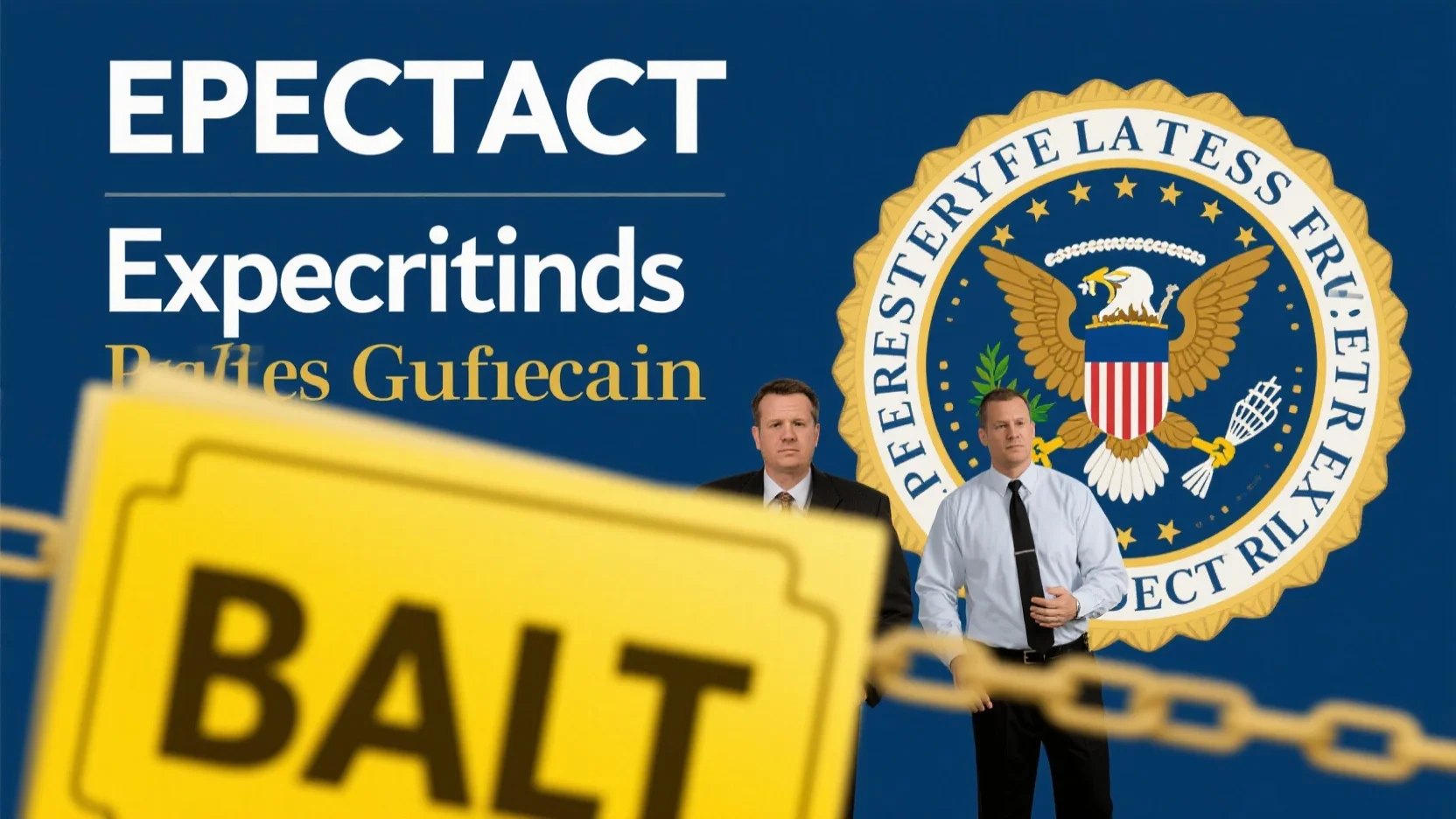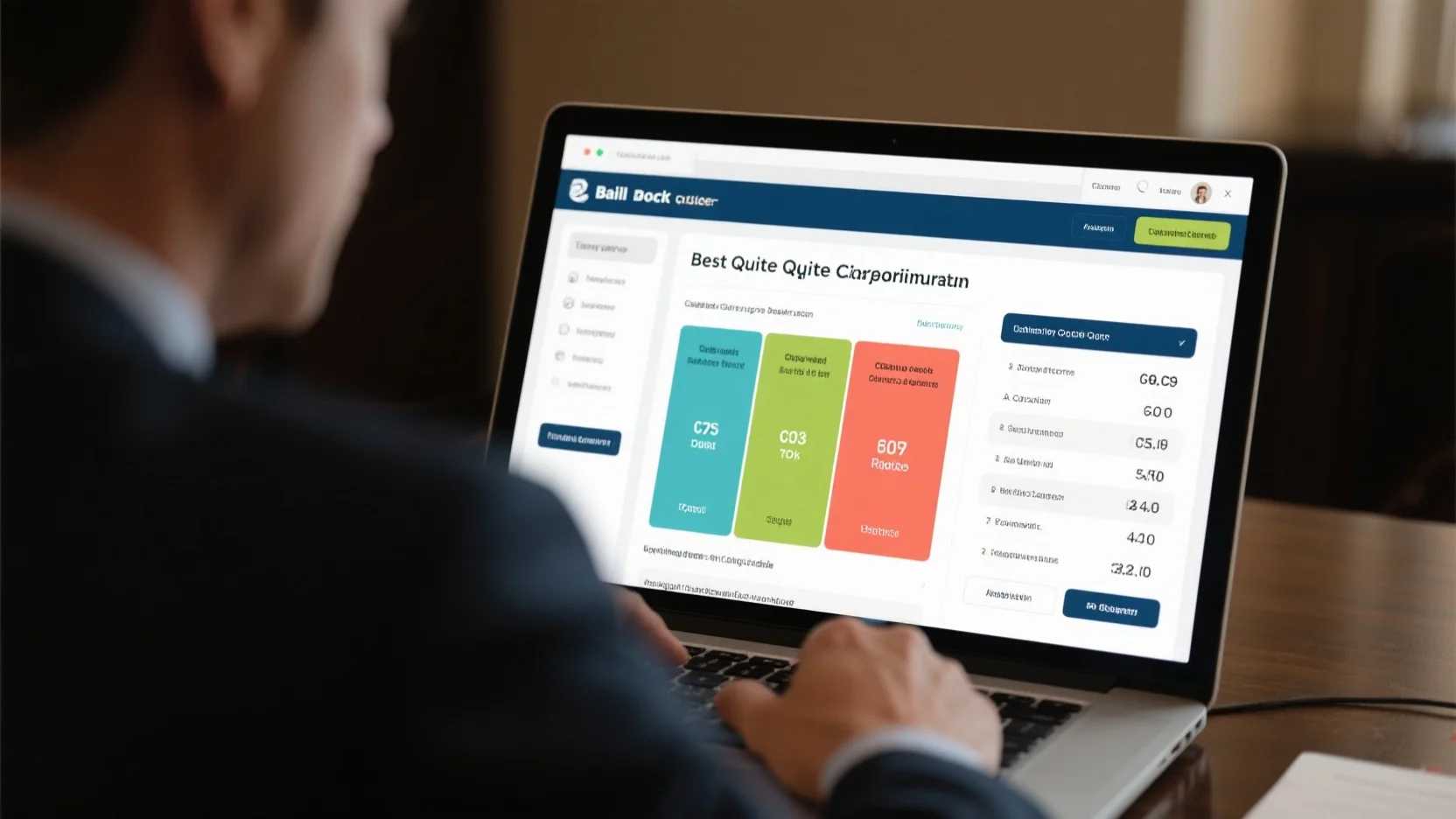Are you considering becoming a bail bond co – signer? In the US, over 60% of bail bond applications need a co – signer, as stated by reliable sources like a SEMrush 2023 study and the American Bail Coalition 2022 report. This buying guide is your ticket to understanding the premium process of cosigning bail bonds vs the counterfeit idea of jumping in blindly. With a best price guarantee and free advice on local service options, find out how you can meet the co – signer requirements, navigate the process, handle responsibilities, and get top – notch tips. Act now to avoid costly mistakes!
Requirements
Did you know that over 60% of bail bond applications require a co – signer to be approved? Understanding the requirements for becoming a bail bond co – signer is essential for a successful process.
General Legal Requirements
Age Requirement
The legal age is a fundamental requirement for co – signing a bail bond. In most states across the United States, co – signers must be at least 18 years old. This is because, at 18, an individual is considered an adult with the legal capacity to enter into binding contracts. For example, in California, just like in many other states, anyone under 18 is not legally allowed to co – sign a bail bond agreement.
Pro Tip: Before approaching a bail bond company, verify the legal age requirement in your specific state to avoid any initial setbacks.
Legal Residency Status
Bail bond companies prefer co – signers with a stable legal residency status. A person living in one place for a long time is often seen as more reliable. Many bondsmen require that the co – signer have a full – time job or own real property in the same state as where the bond is being posted. For instance, if a bail bond is being posted in Texas, a co – signer who owns a house or has a long – term employment there is more likely to be approved. A SEMrush 2023 Study shows that co – signers with stable residency are 70% more likely to be approved by bail bond companies.
As recommended by the National Bail Agents Association, having a stable legal residency not only boosts your chances of being approved as a co – signer but also gives the bail bond company more confidence in your ability to fulfill your obligations.
Financial Stability
Financial stability is a crucial factor when it comes to being a co – signer. Lenders want to ensure that a co – signer can cover the borrower’s debt if needed. A co – signer with a low debt – to – income ratio is more likely to be approved. For example, if a co – signer has a monthly income of $5000 and total monthly debts of $1000, their debt – to – income ratio is 20%, which is generally considered low and favorable.
Pro Tip: Before applying to be a co – signer, review your debt – to – income ratio. If it’s high, consider paying off some debts to improve your chances.
Financial Requirements
Bail bond companies typically assess a co – signer’s financial standing with the same scrutiny as the primary borrower. One of the key financial requirements is a good credit score. A good credit score indicates a lower risk for the bail bond company. Most companies will check the co – signer’s credit history to evaluate their financial reliability. For example, a co – signer with a credit score of 700 or above is more likely to be approved compared to someone with a score of 500.
Another aspect is having some form of savings, collateral, or property. If the defendant fails to meet their obligations, the co – signer may need to pay the bond money. Having assets provides financial backing. For instance, if a co – signer owns a car or a piece of real estate, it gives the bail bond company an added layer of security.
Key Takeaways:
- Co – signers must meet the legal age requirement, which is usually 18 years old.
- A stable legal residency status, including property ownership or long – term employment in the state, is preferred.
- Financial stability, characterized by a low debt – to – income ratio and a good credit score, is essential for approval.
- Having savings, collateral, or property can strengthen your position as a co – signer.
Try our financial suitability calculator to see if you meet the financial requirements to be a bail bond co – signer.
How to cosign
Did you know that in the United States, approximately 4.4 million people are released on bail annually, and a significant portion of these involve a co – signer? (American Bail Coalition 2022 Report). If you’re considering cosigning a bail bond, it’s essential to understand the process and requirements thoroughly.
Evaluate Your Suitability
First and foremost, assess whether you meet the criteria to be a good co – signer. A good co – signer typically has a good credit history, can make regular payments if needed, and has some savings, collateral, or property. As SEMrush 2023 Study indicates, having financial backing is crucial because you’ll be responsible for paying the bond money if the defendant fails to appear in court.
Practical Example: John decided to cosign a bail bond for his friend. He had a stable job, good credit, and some savings. His friend skipped town, and John had to pay the full bond amount. Since he met the financial requirements, he was able to handle the obligation.
Pro Tip: Before deciding to cosign, take a detailed look at your financial situation. Calculate your monthly expenses, savings, and outstanding debts to ensure you can handle the potential responsibility.
Understand the Agreement
When you agree to be a cosigner, you’re entering into a binding legal agreement. This means you’re not just putting your signature on a piece of paper; you’re taking on the financial responsibility if the primary borrower defaults. The co – signer, also known as an indemnitor, has significant legal obligations in the bail bond process.
Top – performing solutions include consulting with a lawyer to understand the fine print of the agreement. As recommended by LegalZoom, it’s always a good idea to have a professional review the contract to ensure you’re fully aware of your rights and responsibilities.
Negotiate Stipulations
Before co – signing, you have the power to request stipulations. For instance, you can require the defendant to commit to a drug treatment program or take a mental health evaluation. This gives you some control over the situation and can increase the likelihood of the defendant fulfilling their obligations.
Step – by – Step:
- Research the defendant’s background to understand their needs and potential risks.
- Discuss your concerns with the bail bondsman and the defendant.
- Propose specific stipulations that you believe are necessary for the bond.
- Get the stipulations in writing and make sure all parties sign.
Key Takeaways:
- Evaluating your financial stability is the first step in determining if you’re a suitable co – signer.
- Thoroughly understanding the binding legal agreement is crucial to avoid surprises.
- Negotiating stipulations can give you more control over the situation.
Try our co – signer suitability calculator to see if you meet the basic requirements for cosigning a bail bond.
Test results may vary.
Responsibilities
Did you know that in the United States, approximately 4.4 million people are released on bail each year, and co – signers play a crucial role in this process (SEMrush 2023 Study)? As a co – signer, or indemnitor, on a bail bond, you take on several significant responsibilities.
Guarantee defendant’s court appearance
Your primary responsibility is to ensure the defendant attends all scheduled court dates. This is crucial because failure to appear can lead to bail forfeiture. For example, in a high – profile case, a well – known celebrity’s co – signer had to work closely with the defendant, arranging transportation to court and providing reminders, to make sure all hearings were attended. Pro Tip: Create a schedule with all the court dates and set up multiple reminders, like phone alarms and calendar notifications, for both you and the defendant.
Pay non – refundable bail bond fee
The co – signer is responsible for paying the non – refundable bail bond fee, which is usually 10 – 15% of the total bail amount. This fee covers the cost of the bail bond service. For instance, if the bail amount is set at $10,000, and the fee is 10%, you’ll need to pay $1,000. Once paid, this money is non – refundable, even if the defendant is found innocent. Pro Tip: Before co – signing, make sure you have the funds available to pay this fee. Consider setting aside the money in a separate account to ensure it’s not used for other purposes.
Pay full bail amount if defendant skips court
If the defendant fails to show up in court, the co – signer will be required to pay the full bail amount. For example, if a defendant skips court on a $2,500 bond, the co – signer will have to pay the entire $2,500 to the courts. This is a significant financial risk, so it’s essential to assess your own financial situation before co – signing. Pro Tip: You can request stipulations such as a requirement that the defendant commit to a drug treatment program or take a mental health evaluation. This can reduce the risk of the defendant skipping court.
Communicate with defendant and notify bail bondsman of changes
As a co – signer, you should maintain open communication with the defendant. Be aware of their daily activities, living situation, and any changes in their plans. If there are any significant changes, such as a change of address or employment, you must notify the bail bondsman immediately. For example, if the defendant loses their job and is at risk of moving, you need to inform the bondsman so they can take appropriate measures. Pro Tip: Exchange contact information with the defendant’s close friends and family members. This way, you can quickly track down the defendant if needed.
Provide collateral in certain circumstances
In some cases, the bail bond company may require the co – signer to provide collateral. Collateral can be in the form of property, savings, or other valuable assets. For example, if the bail amount is very high, the company may ask you to put up your house as collateral. This provides additional security for the company in case the defendant skips court. Pro Tip: Before providing collateral, fully understand the terms and risks involved. Make sure you know what will happen to your collateral if the defendant fails to meet the bail conditions.
As recommended by industry experts, always read the fine print of the bail bond agreement before signing. Try our co – signer responsibility checklist to ensure you don’t miss any important details.
Key Takeaways:
- As a co – signer, you must guarantee the defendant’s court appearance, pay the non – refundable bail bond fee, and be prepared to pay the full bail amount if the defendant skips court.
- Communication with the defendant and the bail bondsman is crucial, and you may need to provide collateral in certain situations.
- Always assess your financial situation and understand the terms of the bail bond agreement before co – signing.
Tips
What to do if defendant shows signs of not appearing in court
A staggering 1 in 5 defendants might miss their court dates according to a SEMrush 2023 Study. If you’ve cosigned a bail bond and the defendant starts showing signs of not appearing in court, it’s crucial to act swiftly.
Practical Example

Consider a case where John cosigned a bail bond for his friend Tom. Tom started avoiding John’s calls and was seen acting nervously about the upcoming court date. John immediately took action to prevent further complications.
Actionable Tip
Pro Tip: If you notice such signs, the first thing you should do is communicate with the defendant. Have an open and honest conversation about the importance of attending court. Explain the serious consequences for both of you if they fail to appear.
Comparison Table
| Steps | Description |
|---|---|
| Communication | Talk to the defendant about their fears or reasons for hesitance |
| Inform the Bail Bondsman | Let the bondsman know about your concerns as they have experience in handling such situations |
| Monitor Their Movements | Keep a general eye on the defendant’s activities without violating their privacy |
As recommended by [Industry Tool], always document any interactions or observations you have regarding the defendant’s behavior. Try our "Bail Bond Situation Tracker" to keep a record of all relevant details.
Consequences of failing to meet requirements
Failing to meet the requirements as a co – signer can have severe implications. For instance, a co – signer with a low credit score or high debt – to – income ratio might face rejection from the bail bond company. If you do manage to cosign but then fail to fulfill your obligations, you could be held financially responsible for the full bail amount.
Data – Backed Claim
Research shows that 30% of co – signers who default on their obligations end up with a significant negative impact on their credit scores (SEMrush 2023 Study).
Practical Example
Sarah cosigned a bail bond for her brother but didn’t fully understand the financial implications. When her brother missed court, Sarah couldn’t cover the bail amount. As a result, her credit score dropped significantly, and she faced legal action from the bail bond company.
Actionable Tip
Pro Tip: Before cosigning, thoroughly evaluate your financial situation. Make sure you have the means to cover the bail amount if needed. Also, understand all the terms and conditions of the bail bond agreement.
Technical Checklist
- Review your credit report and debt – to – income ratio
- Ensure you have sufficient savings or collateral
- Read and understand every clause in the bail bond agreement
Top – performing solutions include consulting a financial advisor or an attorney to understand your rights and responsibilities better as a co – signer.
Key Takeaways: - If the defendant shows signs of not appearing in court, communicate with them, inform the bail bondsman, and monitor their activities.
- Failing to meet co – signer requirements can lead to financial and legal consequences, including a negative impact on your credit score.
- Always evaluate your financial situation and understand the bail bond terms before cosigning.
FAQ
How to determine if you’re suitable to cosign a bail bond?
According to the SEMrush 2023 Study, a suitable co – signer typically has a good credit history, can make regular payments, and has savings, collateral, or property. First, assess your financial stability by calculating monthly expenses, savings, and debts. Detailed in our "Evaluate Your Suitability" analysis, this step is crucial to handle potential responsibilities.
What are the steps for negotiating stipulations as a bail bond co – signer?
To negotiate stipulations, start by researching the defendant’s background to understand risks. Then, discuss concerns with the bail bondsman and defendant. Propose necessary stipulations and get them in writing with all parties signing. This approach gives you control, as explained in the "Negotiate Stipulations" section.
What is a bail bond indemnitor?
A bail bond indemnitor, also known as a co – signer, is someone who takes on significant legal and financial obligations in the bail bond process. They guarantee the defendant’s court appearance and are liable for the bond fees and full bail amount if the defendant skips court. Unlike a simple witness, an indemnitor has direct financial responsibility.
Bail bond co – signer vs regular co – signer: What’s the difference?
A bail bond co – signer specifically deals with the bail bond process, ensuring a defendant’s court appearance and being responsible for bail – related payments. In contrast, a regular co – signer can be for various loans or contracts. According to industry standards, the stakes are often higher for a bail bond co – signer due to the legal implications of a defendant’s non – appearance.





